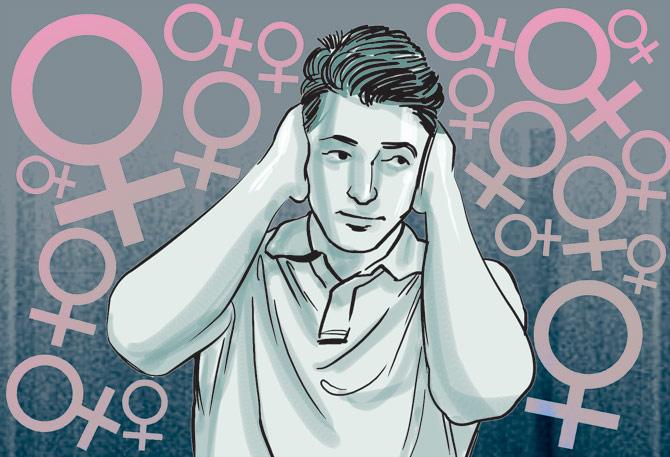A few days ago, a journalist called me to ask, "Why do women always get believed just because they are women?" A little puzzled I asked, "What is the data on which this is based?"

 A few days ago, a journalist called me to ask, "Why do women always get believed just because they are women?" A little puzzled I asked, "What is the data on which this is based?" I do not blame the journalist, who was female, for not being able to answer because there is no data to prove this and much to counter-prove it. On probing I understood that the basis of the story, was Hrithik Roshan's open letter in which he made this statement vis-a-vis his conflicts with Kangana Ranaut.
A few days ago, a journalist called me to ask, "Why do women always get believed just because they are women?" A little puzzled I asked, "What is the data on which this is based?" I do not blame the journalist, who was female, for not being able to answer because there is no data to prove this and much to counter-prove it. On probing I understood that the basis of the story, was Hrithik Roshan's open letter in which he made this statement vis-a-vis his conflicts with Kangana Ranaut.
ADVERTISEMENT
The most interesting aspect of the conversation was how it contradicted its own proposition. A general statement from a well-connected man was enough for someone to take it seriously. No substantiation required. Nice, na?

Illustration/Ravi Jadhav
Lately, one also notices the phrase from male colleagues in various discussions related to women — 'I'm asking this to learn, not argue.' Fair enough. Women may react defensively to a genuine question because they get used to being undermined. People have been writing about gender and queerness for so long — when will it be canonical enough to not be treated as esoterica and merit self-study? When will it be audible without amplification from women? Pappu pass kab hoga without private tuition? This purported opposite of mansplaining only fetishises of women's experiences.
As the stories of women harassed by Harvey Weinstein stack up in the American media, reading each account is harrowing. The relentlessness of abuse and disregard; the constant overruling of the women saying no, I don't want to. But when hearing women in general is so difficult, or so fetishised, made into such an exception, why would you hear their Nos?
It's baffling also that people write about this as if they are hearing this for the first time. Apparently, only now will we able to hold a mirror to our own society. It is like saying the American media and film industry did not know Weinstein was an abusive man until last week. Everyone knows these things like everyone knows about the degree of sexual harassment and abuse in the Indian film industry and corporate offices alike. Everyone who does publicity or praise for the films of men known to sexually denigrate women and be abusive to their male subordinates, especially those from less privileged backgrounds, knows it. It is possible to be a great artiste and a dodgy man. 'Dodgy man' does not cancel 'great artiste' say all who praise. I completely agree. But why should 'great artiste' cancel 'dodgy man' and why isn't there enough language, besides glib demonising, to deal with that?
The issue is not only that we don't listen to women enough. People listen to powerful men too much, simply because they are powerful men, and participate in building up the cults of crusading, maverick men. Every single day.
To prove they do not condone this, belatedly, people also say things like — I'm a woman/ feminist man/ I have daughters. But you don't even have to be any of these things to engage with other people's experience. You simply have to be a decent person and a student of life, who is capable of listening and hearing women as simply and seriously as you do men, and make it a natural part of how you make sense of the world. Every single day.
Paromita Vohra is an award-winning Mumbai-based filmmaker, writer and curator working with fiction and non-fiction. Reach her at www.parodevipictures.com
 Subscribe today by clicking the link and stay updated with the latest news!" Click here!
Subscribe today by clicking the link and stay updated with the latest news!" Click here!






